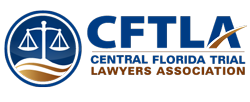Clermont Drunk Driving Accident Lawyer
When you drive Florida’s highways, you have a road trip experience like no other. You see lush tropical landscapes and scenic views wherever you go. Each road is a pathway to a trendy resort, an impressive entertainment venue, or a thrilling theme park. Florida is filled with exciting destinations and family-friendly adventures, but as a conscientious driver, you must also be aware of drunk driving car accident dangers. When you’re on the road, there’s always a possibility that a drunk driver is operating the car in front of you, behind you, or in an adjacent lane.
While you’re driving responsibly to keep your family safe, drunk drivers with whom you share the road are dealing with a different choice. As long as someone who has been drinking remains outside of his vehicle, his alcohol consumption often causes consequences that only affect him. When he is actively drinking and decides to get behind the wheel, his choice creates a hazard for himself, for you and your family, and for everyone else on the road.
Alcohol deteriorates the mental and physical functioning that enables a person to drive safely. With each alcoholic beverage consumed, a drinker chooses to increase the risk he presents for others on the road. Because alcohol impairs a person’s judgment and reasoning, it’s likely that at some point, an alcohol-impaired driver won’t recognize his diminished mental and physical capacities, not even after an accident occurs.
This drinking/driving dynamic becomes more frequent on weekends and from evening into late night hours. That’s when alcohol-impaired drivers become involved in a significant number of fatal accidents.
Are Drunk Driving Car Accidents Common in Florida?
Drunk driving is the number one bad behavior on the National Highway Traffic Safety Administration’s Risky Driving list. The NHTSA’s national statistics for 2018 documented 10,511 deaths involving an accident with a drunk driver. That’s 30 deaths each day, about one every 50 minutes.
With 814 deaths in one recent year, the NHTSA lists Florida as having the third-highest DUI crash fatality rate in the country.
The FLHSMV Florida Crash Dashboard provides years of accident statistics, including these additional facts about Florida DUI crashes in a single year:
- 4,766 crashes in Florida involved at least one alcohol-impaired driver
- Statewide, 254 people died in alcohol-related accidents
- In Orange County, 292 alcohol-related crashes occurred
- 27 people died in alcohol-related crashes in Orange County
What Are Florida’s DUI Laws?
Florida statutes recognize that a driver doesn’t have to reach 0.08 percent BAC for alcohol to affect his driving. Under Florida 316.193, a driver also commits a DUI crime if they have been drinking, “…to the extent that the person’s normal faculties are impaired…” A person is guilty of DUI if they are “… driving or in actual physical control…” of a vehicle. This means a person commits a crime if they are sitting behind the wheel and in control of the vehicle but not necessarily driving. These laws also apply to drivers operating a vehicle under the influence of controlled substances.
Florida’s strict DUI codes criminalize a driver’s first DUI conviction. For a first offense, a person convicted of a DUI crime owes a minimum of $500 to $1,000 in fines. Penalties for a first conviction also include up to six months of imprisonment, community service, and probation. Penalties increase for each subsequent DUI conviction and usually include higher fines, license restrictions, longer sentences, and mandatory ignition interlock devices.
Penalties also increase if a person drives under the influence with a passenger under the age of 18 or a 0.15 percent BAC or higher. The penalty structure is tougher for a driver under the influence who causes serious injury, death of an unborn child, or other excessive damages. Despite Florida’s tough laws, penalties, and ongoing educational programs, drivers continue to operate their vehicles under the influence of alcohol.
What Are Drunk Driving Crashes in the News?
If you follow local and regional news, you see drunk driving accidents reported frequently. In many cases, law enforcement authorities don’t report alcohol involvement unless it’s confirmed or obvious.
As with these three accidents, alcohol use is sometimes so flagrant that police officers issue a DUI at the scene:
- A newspaper reported that a man fatally injured another driver when he overtook their slower-moving vehicle and struck it in the rear. The driver was allegedly under the influence of alcohol and driving without a license. He fled the scene after the accident, but the police located him and arrested him
- Police charged a woman driver with DUI after she ran a stoplight and struck a bus at the intersection of Carter Street and Westmoreland Drive. The impact was so severe it caused extensive damage when it forced the bus into a concrete wall. The bus driver and five passengers sustained serious injuries
- TMZ Sports reported that NBA player and Florida native Chandler Parsons sustained head, neck, and back injuries in an accident in Gainesville. Allegedly, the responsible driver had a soft drink bottle filled with alcohol, smelled of alcohol, and admitted that he was drinking before the accident occurred. Another news source reported that the injuries would likely end Parson’s NBA career
When Does Alcohol Impairment Begin?
In Florida, even if a driver shows no signs of alcohol consumption, he is legally impaired when his Blood Alcohol Concentration reaches 0.08 percent per deciliter. NHTSA testing has documented how a driver’s abilities begin to diminish at even lower levels. At 0.02 percent BAC, alcohol affects a person’s judgment and mood and diminishes his visual and physical abilities. At 0.05 percent BAC, a drinker begins losing control of his small muscles and his coordination abilities.
Before a drinker reaches 0.08 percent BAC, he is operating with a significant reduction in speech, hearing, balance, reaction time, and other physical capabilities necessary for driving safely. He can’t steer very well, respond to moving objects, or react well to emergencies. When a driver reaches 0.08 percent BAC, his deficits restrict his ability to process information, control his vehicle’s speed, or detect danger. This puts you and everyone else at risk.
How Fast Does Alcohol Go into Effect?
Research conducted by the National Highway Traffic Safety Association explains how alcohol makes the rapid transition from being a social lubricant to altering a drinker’s driving ability:
- A drinker’s small intestine and stomach absorb alcohol, providing a quick route to a drinker’s bloodstream
- Alcohol accumulates and remains in the bloodstream until the liver metabolizes it
- While in a drinker’s bloodstream, it has a presence that’s designated by the alcohol’s weight compared to the volume of blood, aka Blood Alcohol Concentration (BAC)
- While the legal BAC limit is 0.08 percent grams per deciliter of blood, a driver’s brain reacts when under the influence of far smaller amounts
- During one recent year, 1,878 people died nationwide in crashes where the driver had a BAC between 0.01 and 0.07
What Are Common Drunk Driving Auto Accident Injuries?
Local and national statistics often focus on alcohol-related fatalities as a measure of drunk driving accident severity. The injuries sustained are often devastating as well. Drunk drivers have little awareness of or control over their actions. This lack of presence often leads to serious accidents. A drunk or drunk driver doesn’t always recognize danger or react in time enough to stop a crash. If they’re speeding, distracted by a digital device, or fail to slow down, their failure to take evasive actions increases the impact severity and the potential for injuries.
Some drunk driving crash impacts are so severe that victims die at the scene. Those who survive often spend a lifetime managing complex conditions. Vehicle accidents are the number one cause of spinal cord injuries (SCI) and traumatic brain injuries (TBI.) When people sustain these and other catastrophic injuries, they often lose their ability to earn an income. Costly treatment and rehabilitation often last a lifetime. Many catastrophically injured victims must learn to manage permanent disabilities that affect every aspect of their lives.
Who Pays for Your Personal Injury Claim?
If a drunk driver injures you in a Florida accident, you don’t have an automatic right to make a liability claim for damages. Your Personal Injury Protection insurance is your primary resource for economic damage reimbursements in Florida. That means you must turn your medical bills into auto insurance carriers. Your Personal Injury Protection coverage pays 80 percent of your medical bills and 60 percent of your lost wages. PIP also covers replacement service expenses incurred because of your injuries.
If a drunk driver caused your injuries, the driver must be legally liable for your damages for the driver’s insurance company to pay for your losses.
You must show that your injuries meet or exceed a tort threshold as described in Florida Statutes 627.737, Tort exemptions:
- Significant/permanent loss of an important bodily function
- Permanent injury
- Significant and permanent scarring or disfigurement
- Death
What Happens if the Drunk Driver Doesn’t Have Insurance?
Drunk drivers often have a high-risk history. Because insurance coverage is costly for a high-risk driver, they often have minimum limits liability insurance policies or no policies at all. If a responsible driver has no coverage to pay your damages, you may have additional damage recovery rights if you have Underinsured Motorist coverage.
Underinsured Motorist coverage isn’t mandatory in Florida. If you have coverage under your policy, your insurance company pays for damages to your personal injury claim under certain circumstances.
These include:
- The other driver is legally liable for your injuries
- Your damages meet or exceed a tort threshold
- The other driver leaves the scene after the accident without providing information or
- The other driver is uninsured or
- His coverage doesn’t apply or
- The other driver is underinsured and doesn’t have a policy limit large enough to cover your damages
If you have UM coverage, your insurance company assumes the role the other driver’s insurance company would have filled if he had a policy in force. Your company investigates your claim and determines liability and damages. They negotiate a settlement with you if they believe they owe you money for your damages.
This often puts you and your insurance company in the awkward position of being adversaries. This can establish a conflict of interest. Your insurer/insured relationship requires you to cooperate in ways you wouldn’t ordinarily cooperate if you were dealing with the responsible driver’s liability carrier.
How to Avoid Drunk Driving Accidents in Florida?
It’s not always easy to avoid a drunk driver when you’re sharing the road with so many other vehicles. Sharpening your defensive driving skills often helps.
Consider these tips:
- Be aware of your surroundings and avoid obvious dangers. Drunk drivers often show signs such as erratic behavior, speeding, and aggressive tendencies. Keep a cushion of space between you and anyone displaying these behaviors
- Consider reporting an obviously drunken driver to your local authorities. You might save someone else’s life
- Slow down at intersections. Don’t assume an oncoming vehicle will stop because you have the right of way. Drunk drivers aren’t always aware of surrounding conditions, traffic control devices, and other vehicles
- Pay attention. Don’t contribute to an already dangerous driving environment by using a digital device, interacting with passengers, taking your eyes off the road, or participating in any other distracted driving behaviors
- Wear your seatbelt. If a drunk driver hits your car, a seatbelt could save your life. Failure to wear a seatbelt is another NHTSA risky driving behavior. The agency estimates that seat belts saved 14,955 lives in one recent year
What Should You Do if You’re Injured in a Drunk Driving Accident?
Immediately following the car crash, you must take certain precautions to safeguard yourself and your passenger’s well-being while also potentially strengthening the viability of your personal injury case. This applies whether the at-fault party in your car accident was drunk or not.
Firstly, you must seek medical attention immediately. Contact 911 and summon emergency services to your accident scene. Not only could your injuries potentially worsen with time, but receiving professional medical treatment creates a paper trail of medical records that can be valuable evidence for your Clermont car accident lawyer.
If there are any witnesses to the accident, attempt to get their contact information and record their statements if possible. In addition, try to get the contact information of the liable driver and insurance provider.
Gather valuable evidence to support your drunk driving car accident claims. Document your injuries, property damage, the other driver, and any other relevant factors that could explain how the accident happened.
Attempt to avoid discussing fault with the at-fault party or their insurance company provider. If an insurance adjuster insists on speaking with you, direct them to talk to your Clermont car accident attorneys instead.
If you have not done so already, now is the time to contact an experienced car accident lawyer to discuss your drunk driving accident case. In addition to helping a car accident victim negotiate for fair compensation for their medical expenses and lost income, your Clermont car accident attorney can also use police reports, traffic camera footage, and other pieces of evidence to help you pursue maximum compensation for your injuries.
If you sustained injuries in an accident with a drunk driver, you need immediate legal assistance to protect your rights. Accident injury cases in Florida become legally complicated very quickly. Even if you sustain serious injuries, the other driver’s insurance carrier won’t automatically pay your damages. Personal injury attorneys help you deal with legal, liability, and coverage issues. They intervene with insurance companies on your behalf and work to recover the damages to which you are entitled.
When you consult with an attorney, you spend time telling your story. The attorney listens and helps you understand your options. You don’t have to decide to pursue your case until you’re ready, but you do need to do so before the statute of limitations expires. In most cases, your legal consultation is free, and the lawyer will represent you on a contingency-fee-basis—so you will pay nothing except a percentage of any settlement or judgment in your favor.
Who May Be Held Liable in Drunk Driving Car Accident Cases?
Florida is among many states that have enacted laws that create liability for bars and other establishments that serve liquor to customers. These laws provide DUI victims with additional avenues for holding at-fault parties accountable for injuries and other losses.
Under Florida’s Dram Shop liability laws, the following entities could be held liable for contributing to a drunk driving car accident:
- The drunk driver
- Bars, restaurants, and nightclubs
- Social hosts who knowingly serve alcohol to minors
- Institutions that knowingly serve recklessly intoxicated people
- Those serving alcohol to habitually addicted alcoholics
Every car accident in Clermont is different from the last. The particulars of your case will depend on the unique facts and how the legal process plays out. For comprehensive legal support, we recommend working with a Lake County law firm experienced in handling drunk driving accident cases. Please contact our law office today to discuss your case in more detail.
What Sort of Financial Compensation Could Be Recovered with a Drunk Driving Car Accident Claim?
With a well-argued case, personal injury claims and wrongful death lawsuits can recover both economic and noneconomic damages for victims and their families.
Economic damages may include:
- Past medical bills and future medical expenses
- Lost wages and lost income earning capacity
- Physical therapy and other medical care expenses
- Property damage
- Funeral, burial, and memorial expenses and wrongful death claims
Non-economic damages may include the following:
- Physical pain and suffering
- Emotional distress or mental anguish
- Disfigurement, disability, or dismemberment
- Lost companionship or consortium
- Diminished quality of life
- Wrongful death
Whether you have a wrongful death lawsuit or a personal injury claim, our law firm has a proven track record of success in helping drunk driving accident victims recover fair compensation for their injuries and other losses.
Schedule a Free Consultation with an Experienced Clermont Drunk Driving Accident Lawyer Today
Our law firm has years of experience representing clients in various personal injury cases, including complex drunk driving accident cases. We would be proud to represent your legal rights in pursuit of the maximum compensation for your injuries and other losses. Those who opt not to retain legal representation tend to have a more difficult time with the legal process and do not usually recover as much of a settlement.
Do not make the mistake of going it alone. Help is available.
Please contact our Clermont legal team today to discuss your drunk driving accident case in more detail. To schedule your free case review, please contact our law office at 407-287-6757.





